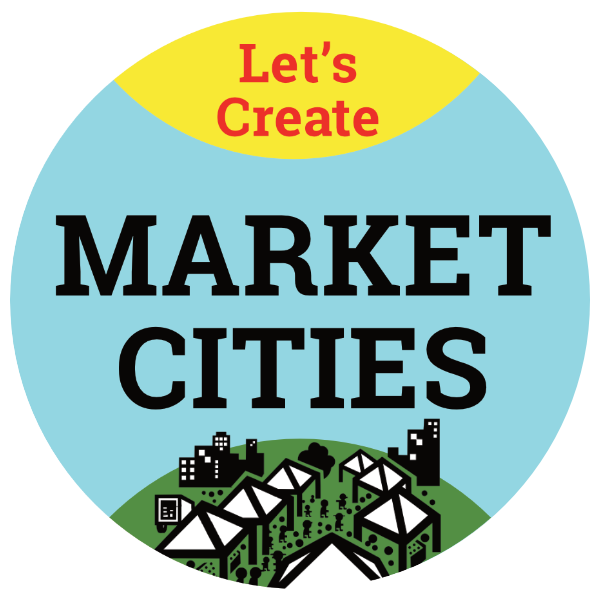Project

Market Cities
The Market Cities Initiative is a partnership spearheaded by field leaders in the global North and South:
We want to change the way we understand the vast ecology of public markets to transform regional economies, to forge new political cultures that balance the interests of supply and demand in settings that also recognize the unique magnetism of markets as public spaces.
On behalf of Slow Food International, I support this effort to develop supportive policies that leverage market assets to address a myriad of critical issues at the subnational level. Working across the urban/rural divide in London, Kampala, Barcelona, Hanoi, and beyond, we are confident that beneath the tents and umbrellas of commerce, we can forge new territorial communities that serve the public good.

Many agile leaders emerge from the public market field. They develop a keen sense for where and who has the capacity to flourish beneath the canopies of commerce. They are good leaders with great critical thinking skills. They possess knowledge valuable — beyond the reaches of the markets. Unfortunately, by the time they mature as leaders, we lose them. There is nowhere for them to grow within the field. If, instead, we can help to direct their leadership to the wider audiences, everyone would benefit. Think of the knowledge they possess about the ecosystem of informal commerce, social cohesion, and nutritional behavior change. How can we make this happen? Lean on philanthropy to develop practitioners' fellowships? Lean on municipalities to hire these leaders to shape regional economies? Opportunities abound.
We have identified 7-principles of a market city: Does this sound like your town? If so, join us. If not, let's make it happen.
- A market city includes a wide variety of types of markets that contribute to one market system.
- A market city organizes diverse partners and stakeholders who can collaborate and act together to achieve common policy objectives.
- A market city measures the value of their markets and understands how they function.
- A market city has distribution networks that prioritize and support healthy, affordable and safe food and other goods produced in the region.
- A market city regularly invests in its market facilities and the management skills of market operators.
- A market city helps diverse types of vendors start and grow their businesses.
- A market city recognizes that its markets are also public spaces that welcome different kinds of people and maintain important cultural heritage.
Learn more about the Market Cities Initiative.
